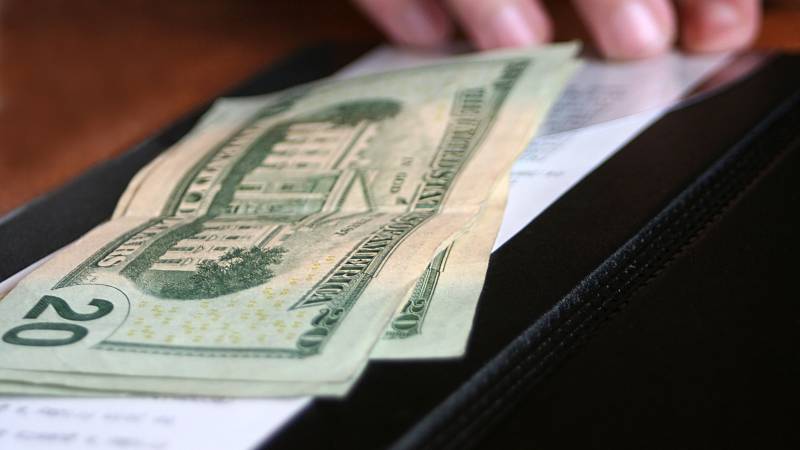Consumer advocates applaud the change
Consumer advocacy groups have celebrated the law, SB 478, calling it a simple matter of common sense that will bring much-needed clarity and transparency to retail transactions.
“People deserve to know the true price of products upfront so that they can do good comparison shopping and so that there’s just good competition in the marketplace,” Jenn Engstrom, state director for the California Public Interest Research Group, a Los Angeles-based nonprofit, told NPR.
“I think this guidance is great for consumers,” Engstrom said, adding that in her view, the attorney general’s interpretation tracks with legislators’ intention.
Laws like the one in California would give consumers something they need: clarity about their expectations, said Erin Witte, the director of consumer protection for the Consumer Federation of America.
“It feels all over the place” right now, she said. And for a lot of people, she adds, uncertainty over whether their dinner will cost an extra $20 could have cascading effects if it’s more than they budgeted.
“You’re thinking about late fees and increased interest and things like that. So it’s not just annoying, it’s harmful for many folks,” Witte said.
Restaurant owners warn of higher prices and fallout
Restaurant owners like Laurie Thomas, who heads the Golden Gate Restaurant Association, said the changes will bring higher prices and sticker shock, which could then raise a psychological hurdle in customers’ dining habits. That, in turn, will hurt restaurants and their workers, she warns.
“If it’s in the core price of the menu, there will be a pullback” in patrons’ spending, she told NPR shortly before the attorney general released the guidelines. “There are some people, I think, that are hoping that the restaurants will just absorb that cost because we’ve seen people say, ‘Oh, it’s too expensive with the service charge.’ ”
Under the new guidelines, Thomas’ organization said in an email to NPR, restaurants will be forced to impose “significant menu price increases.” And if customers eat out less, it warns, “Not only will restaurants struggle, but workers will lose hours and jobs.”
Thomas said she has always advocated for restaurants to be clear about any additional fees they charge.
“We as a restaurant organization have never been a proponent of not fully disclosing any additional fees,” she said, citing longstanding practices like charging a mandatory gratuity for large parties.
“It should always be listed,” she said. “You should never mislead a customer.”
At her two restaurants, Thomas said, longtime staff prefer a traditional tipping method. She plans to use the time before July 1 to consult with her employees about how to adjust to the new rules.
The California Restaurant Association “strenuously disagrees with the AG’s expansive interpretation” of the law, said Matthew Sutton, the group’s senior vice president of government affairs.
Sutton accuses the attorney general’s office of a “bait-and-switch,” saying its interpretation “is clearly inconsistent with the Legislature’s intent.” Courts have allowed service fees as long as they’re properly disclosed; he added that the industry group is “considering all available options to block implementation” of the law in the way the guidelines describe.
Momentum is building for transparent pricing
It’s hard to predict all of the potential effects of California’s new law, partly due to the disparate industries it affects and because it would be the first such ban enacted in the U.S. The federal government has proposed a similar rule, and several other states are also weighing legislation.
A dozen states, including Colorado and Pennsylvania, have taken up legislation similar to California’s this year, although as of now, none of those bills have gotten final approval, according to the American Economic Liberties Project, a progressive nonprofit that campaigns against junk fees.
At the federal level, the Federal Trade Commission is reviewing thousands of comments it received after publishing a proposed rule about “unfair or deceptive fees” that misled customers about the total costs of goods and services last November. However, federal rules are subject to change whenever the White House changes hands.
“So it really behooves states to be very active on this issue,” Witte said, noting the growing momentum behind junk fee legislation.
“We’ve seen consumers across political lines,” she said. “This is a really bipartisan issue” to push for transparent pricing.
But another important consideration, Witte and other advocates said, is to ensure changes don’t harm employees.
Why do restaurant patrons react so strongly to fees?
The restaurant-patron relationship is personal by nature: you are, after all, putting their product in your body. For millions of Americans, the COVID-19 pandemic interrupted that dynamic. And when they returned to restaurants, things were different. It was common to see eateries struggle to attract and retain enough staff; to sweeten the deal, many added surcharges that helped them raise workers’ pay.

